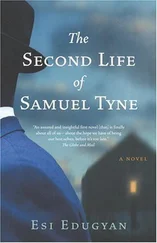Albert Paine - The Boys' Life of Mark Twain
Здесь есть возможность читать онлайн «Albert Paine - The Boys' Life of Mark Twain» — ознакомительный отрывок электронной книги совершенно бесплатно, а после прочтения отрывка купить полную версию. В некоторых случаях можно слушать аудио, скачать через торрент в формате fb2 и присутствует краткое содержание. Издательство: Иностранный паблик, Жанр: Биографии и Мемуары, foreign_antique, на английском языке. Описание произведения, (предисловие) а так же отзывы посетителей доступны на портале библиотеки ЛибКат.
- Название:The Boys' Life of Mark Twain
- Автор:
- Издательство:Иностранный паблик
- Жанр:
- Год:неизвестен
- ISBN:нет данных
- Рейтинг книги:5 / 5. Голосов: 1
-
Избранное:Добавить в избранное
- Отзывы:
-
Ваша оценка:
- 100
- 1
- 2
- 3
- 4
- 5
The Boys' Life of Mark Twain: краткое содержание, описание и аннотация
Предлагаем к чтению аннотацию, описание, краткое содержание или предисловие (зависит от того, что написал сам автор книги «The Boys' Life of Mark Twain»). Если вы не нашли необходимую информацию о книге — напишите в комментариях, мы постараемся отыскать её.
The Boys' Life of Mark Twain — читать онлайн ознакомительный отрывок
Ниже представлен текст книги, разбитый по страницам. Система сохранения места последней прочитанной страницы, позволяет с удобством читать онлайн бесплатно книгу «The Boys' Life of Mark Twain», без необходимости каждый раз заново искать на чём Вы остановились. Поставьте закладку, и сможете в любой момент перейти на страницу, на которой закончили чтение.
Интервал:
Закладка:
Then, suddenly, they could hardly believe their eyes; a little way above the road the boulder struck a projection, made one mighty leap into the air, sailed clear over the negro and his mule, and landed in the soft dirt beyond the road, only a fragment striking the shop, damaging, but not wrecking it. Half buried in the ground, the great stone lay there for nearly forty years; then it was broken up. It was the last rock the boys ever rolled down. Nearly sixty years later John Briggs and Mark Twain walked across Holliday's Hill and looked down toward the river road.
Mark Twain said: "It was a mighty good thing, John, that stone acted the way it did. We might have had to pay a fancy price for that old darky I can see him yet." 1 1 John Briggs died in 1907; earlier in the same year the writer of this memoir spent an afternoon with him and obtained from him most of the material for this chapter.
It can be no harm now, to confess that the boy Sam Clemens—a pretty small boy, a good deal less than twelve at the time, and by no means large for his years—was the leader of this unhallowed band. In any case, truth requires this admission. If the band had a leader, it was Sam, just as it was Tom Sawyer in the book. They were always ready to listen to him—they would even stop fishing to do that—and to follow his plans. They looked to him for ideas and directions, and he gloried in being a leader and showing off, just as Tom did in the book. It seems almost a pity that in those far-off barefoot days he could not have looked down the years and caught a glimpse of his splendid destiny.
But of literary fame he could never have dreamed. The chief ambition —the "permanent ambition"—of every Hannibal boy was to be a pilot. The pilot in his splendid glass perch with his supreme power and princely salary was to them the noblest of all human creatures. An elder Bowen boy was already a pilot, and when he came home, as he did now and then, his person seemed almost too sacred to touch.
Next to being a pilot, Sam thought he would like to be a pirate or a bandit or a trapper-scout—something gorgeous and awe-inspiring, where his word, his nod, would still be law. The river kept his river ambition always fresh, and with the cave and the forest round about helped him to imagine those other things.
The cave was the joy of his heart. It was a real cave, not merely a hole, but a marvel of deep passages and vaulted chambers that led back into the bluffs and far down into the earth, even below the river, some said. Sam Clemens never tired of the cave. He was willing any time to quit fishing or swimming or melon-hunting for the three-mile walk, or pull, that brought them to its mystic door. With its long corridors, its royal chambers hung with stalactites, its remote hiding-places, it was exactly suitable, Sam thought, to be the lair of an outlaw, and in it he imagined and carried out adventures which his faithful followers may not always have understood, though enjoying them none the less for that reason.
In Tom Sawyer, Indian Joe dies in the cave. He did not die there in real life, but was lost there once and was very weak when they found him. He was not as bad as painted in the book, though he was dissolute and accounted dangerous; and when one night he died in reality, there came a thunder-storm so terrific that Sam Clemens at home, in bed, was certain that Satan had come in person for the half-breed's soul. He covered his head and said his prayers with fearful anxiety lest the evil one might decide to save another trip by taking him along then.
The treasure-digging adventure in the book had this foundation in fact: It was said that two French trappers had once buried a chest of gold about two miles above Hannibal, and that it was still there. Tom Blankenship (Huck) one morning said he had dreamed just where the treasure was, and that if the boys—Sam Clemens and John Briggs—would go with him and help dig, he would divide. The boys had great faith in dreams, especially in Huck's dreams. They followed him to a place with some shovels and picks, and he showed them just where to dig. Then he sat down under the shade of a pawpaw-bush and gave orders.
They dug nearly all day. Huck didn't dig any himself, because he had done the dreaming, which was his share. They didn't find the treasure that day, and next morning they took two long iron rods to push and drive into the ground until they should strike something. They struck a number of things, but when they dug down it was never the money they found. That night the boys said they wouldn't dig any more.
But Huck had another dream. He dreamed the gold was exactly under the little pawpaw-tree. This sounded so circumstantial that they went back and dug another day. It was hot weather, too—August—and that night they were nearly dead. Even Huck gave it up then. He said there was something wrong about the way they dug.
This differs a good deal from the treasure incident in the book, but it shows us what respect the boys had for the gifts of the ragamuffin original of Huck Finn. Tom Blankenship's brother Ben was also used, and very importantly, in the creation of our beloved Huck. Ben was considerably older, but certainly no more reputable, than Tom. He tormented the smaller boys, and they had little love for him. Yet somewhere in Ben Blankenship's nature there was a fine, generous strain of humanity that provided Mark Twain with that immortal episode—the sheltering of Nigger Jim. This is the real story:
A slave ran off from Monroe County, Missouri, and got across the river into Illinois. Ben used to fish and hunt over there in the swamps, and one day found him. It was considered a most worthy act in those days to return a runaway slave; in fact, it was a crime not to do it. Besides, there was for this one a reward of fifty dollars—a fortune to ragged, out-cast Ben Blankenship. That money, and the honor he could acquire, must have been tempting to the waif, but it did not outweigh his human sympathy. Instead of giving him up and claiming the reward, Ben kept the runaway over there in the marshes all summer. The negro fished, and Ben carried him scraps of other food. Then, by and by, the facts leaked out. Some wood- choppers went on a hunt for the fugitive and chased him to what was called Bird Slough. There, trying to cross a drift, he was drowned.
Huck's struggle in the book is between conscience and the law, on one side, and deep human sympathy on the other. Ben Blankenship's struggle, supposing there was one, would be between sympathy and the offered reward. Neither conscience nor law would trouble him. It was his native humanity that made him shelter the runaway, and it must have been strong and genuine to make him resist the lure of the fifty-dollar prize.
There was another chapter to this incident. A few days after the drowning of the runaway, Sam Clemens and his band made their way to the place and were pushing the drift about, when, all at once, the negro shot up out of the water, straight and terrible, a full half-length in the air. He had gone down foremost and had been caught in the drift. The boys did not stop to investigate, but flew in terror to report their tale.
Those early days seem to have been full of gruesome things. In "The Innocents Abroad," the author tells how he once spent a night in his father's office and discovered there a murdered man. This was a true incident. The man had been stabbed that afternoon and carried into the house to die. Sam and John Briggs had been playing truant all day and knew nothing of the matter. Sam thought the office safer than his home, where his mother was probably sitting up for him. He climbed in by a window and lay down on the lounge, but did not sleep. Presently he noticed what appeared to be an unusual shape on the floor. He tried to turn his face to the wall and forget it, but that would not do. In agony he watched the thing until at last a square of moonlight gradually revealed a sight that he never forgot. In the book he says:
Читать дальшеИнтервал:
Закладка:
Похожие книги на «The Boys' Life of Mark Twain»
Представляем Вашему вниманию похожие книги на «The Boys' Life of Mark Twain» списком для выбора. Мы отобрали схожую по названию и смыслу литературу в надежде предоставить читателям больше вариантов отыскать новые, интересные, ещё непрочитанные произведения.
Обсуждение, отзывы о книге «The Boys' Life of Mark Twain» и просто собственные мнения читателей. Оставьте ваши комментарии, напишите, что Вы думаете о произведении, его смысле или главных героях. Укажите что конкретно понравилось, а что нет, и почему Вы так считаете.












